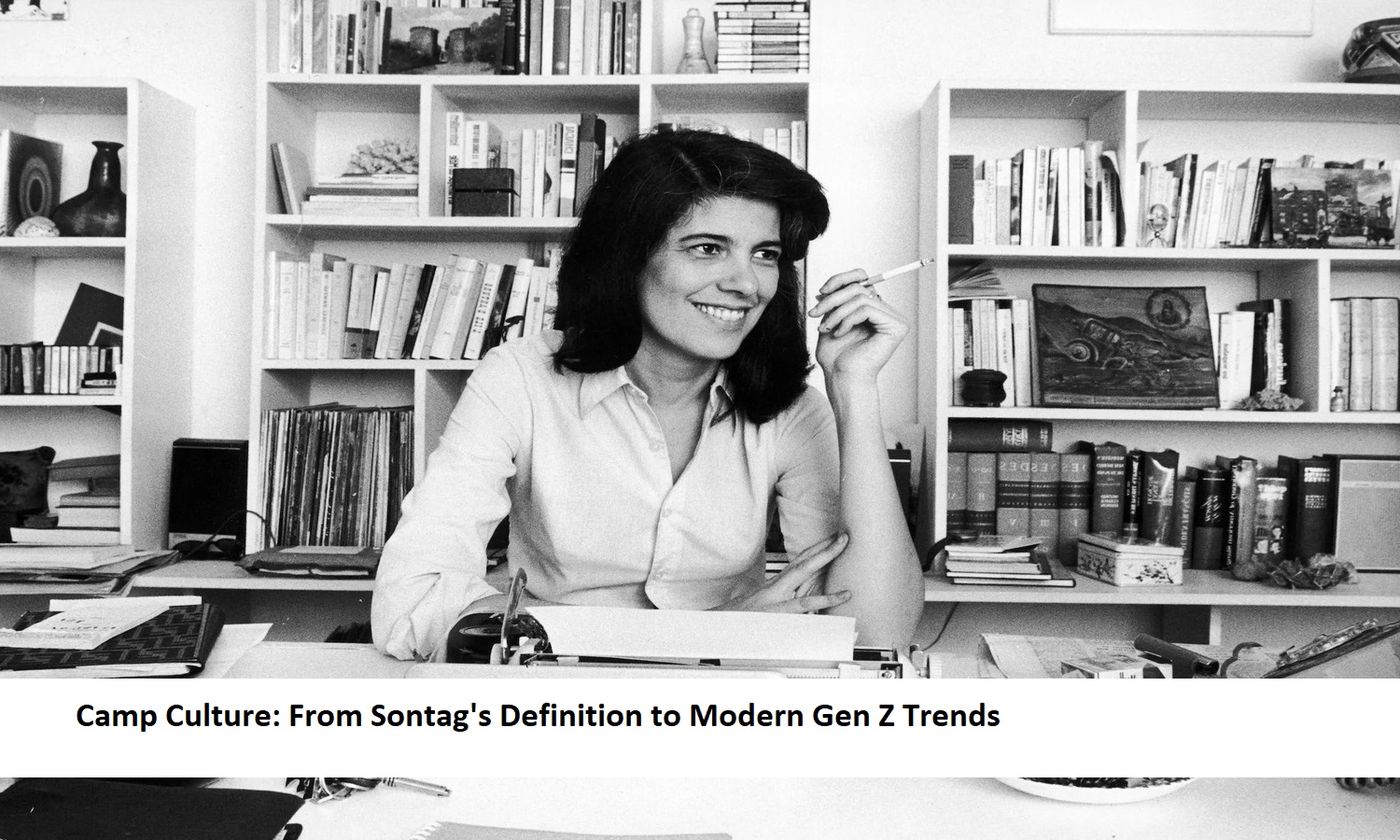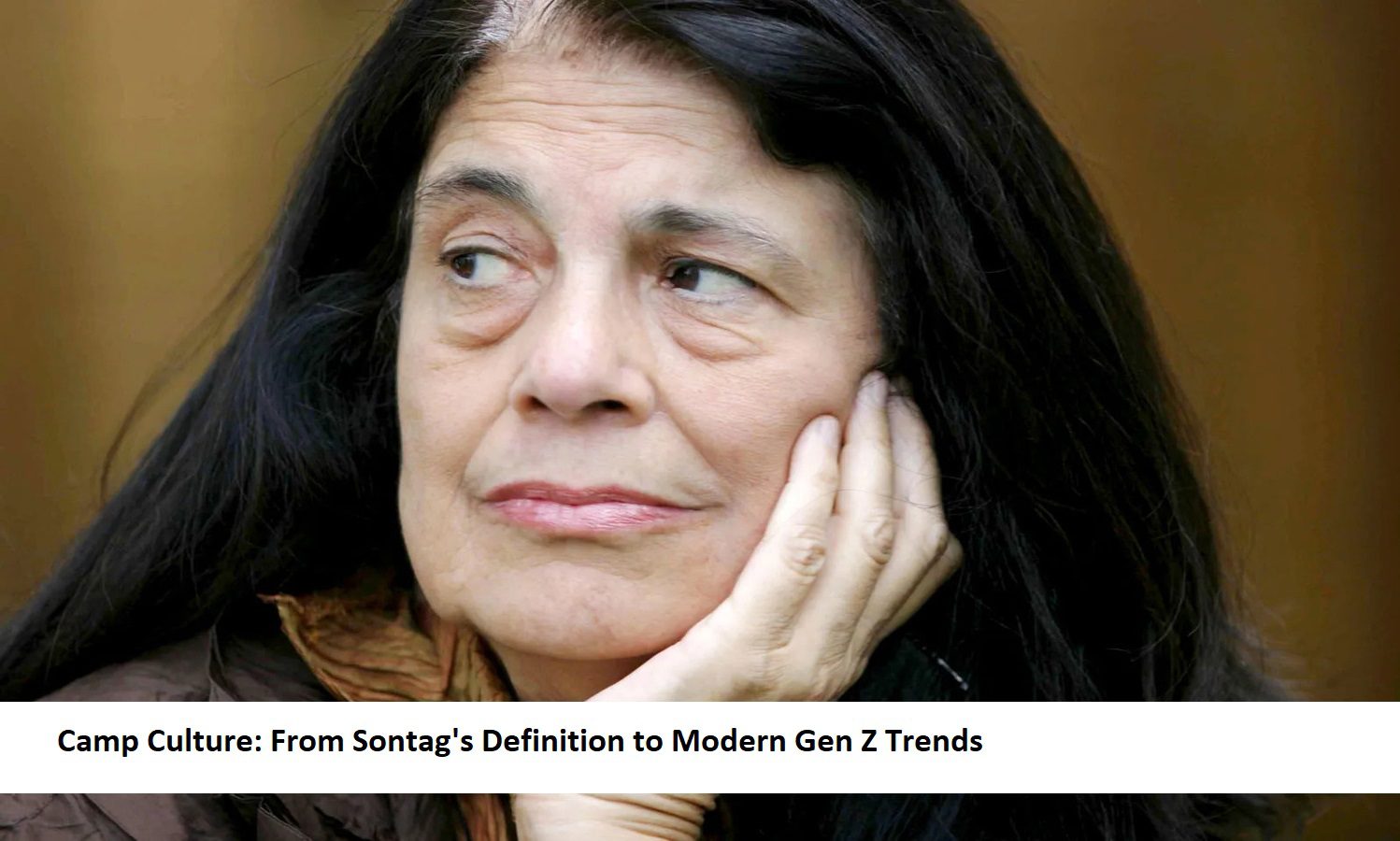Camp Culture: Camp” is a common word with a vague meaning. Its influence was felt in Gen Z lingo and the 2019 Met Gala theme, but its roots are deeper, especially in LGBT communities. Susan Sontag’s 1964 essay defined “camp”:
In “Notes on “Camp,” Sontag stated, “Camp suggests that good taste is not only good taste, and that there is, in fact, a nice taste of ill taste.”
“Camp” is a dance of “inauthentic visual cues,” according to Louisiana State University fashion designer Michael Mamp. Camp often exceeds expectations, says assistant professor and textile and costume museum curator Mamp. It’s an overblown display of one’s identity.
Sontag’s position is intriguing since she sees camp as a distinct worldview. It celebrates the unusual, the “off,” and the deceptive.
20-year-old fashion influencer and NYU student Wesley Breed calls camp “so bad it’s good.” He speaks modernly. Breed’s description nails camp’s unique charm: a genuine attempt that goes off track and creates something extraordinary.
Fashion loves camp. Consider Comme des Garcons’ avant-garde runway displays, which blur high fashion with art. Rei Kawakubo’s theatrical and emotional art displays camp’s attraction, mixing humor and seriousness.
Celebrities are labeled by Gen Z for their behavior and style. Katy Perry’s candy-coated ensembles, Lady Gaga’s flesh dress, and even past fashion displays are camp.
The Met Gala’s 2019 theme, “Camp: Notes on Fashion,” was a mixed bag when it came to recreating camp. The party performed in secret. But it seemed to push camp away from its natural roots, putting the hundreds-year-old LGBTQ+ connection on hold.
Art and architecture have shaped camp history. The eccentricity of English poets and the beauty of Rococo churches are influenced by mannerist art from the late 17th century. Camp history is strong at Versailles. It mixes lavish and silly.


Camp finds a better tale among queer groups. Mamp, an LGBTQ+ history and fashion expert, remembers “campy” figures like Marsha P. Johnson and Sylvia Rivera. Authenticity and oddness went along in their emotional performances. Camp was like a prism, reflecting their deepest truths and revealing various sincerities.
Many camp celebrities did not identify as queer, yet camp culture and homosexual identity were interwoven. Not merely renowned, Judy Garland, Joan Crawford, and Barbra Streisand lived in camp. Their deeds exemplified camp: extreme seriousness.
Sontag’s statement that camp is best when “dead serious” was strong. Love of diversity makes camp appealing. It celebrates oddities.
“Camp” is now slang for something odd or humorous. “Camp” captures nuance and surprise. Breed used TikTok to teach younger people about history. “Camp” is a figure of speech. It’s odd and intriguing.
“Camp” puzzles in this blend of language, dress, art, and existence. Perhaps it’s named “camp” because it’s hard to define. Camp is a real-to-strange abstraction. Mamp’s reflections deepen Sontag’s assertion. Camp’s opposite may be easier to define.
READ MORE: Paul Veneto Tribute: Honoring 9/11 Heroes with ‘Paulie’s Push
Also Read: The Bachelorette Actress: Untangling of Kaitlyn Bristowe and Jason Tartick Fairytale
Our Reader’s Queries
What is camp culture?
Camp is a unique way of expressing irony and rebellion against mainstream society by embracing a flashy and exaggerated aesthetic. Susan Sontag, the scholar who defined the term, identified its key traits as artifice, frivolity, fake middle-class sophistication, and over-the-top extravagance.
What does camp mean in LGBT?
This term is used to describe a gay man who openly flaunts his sexuality by being flamboyant or eccentric. An example of this is the character Daffyd Thomas from the English comedy skit show Little Britain.
What is the cultural term camp?
The initial English explanation of the phrase, found in a 1909 version of the Oxford English Dictionary, matched the prevailing, modern ideas of camp: “showy, over the top, pretentious, dramatic; feminine or homosexual; related to, characteristic of, gay people…” If not the same as…
What does something being camp mean?
This iteration of the play embodies pure camp: it’s delightfully absurd and daringly executed, with innuendos galore. This display of over-the-top artificiality and outdated charm is so amusing, it’s sure to leave a lasting impression.

